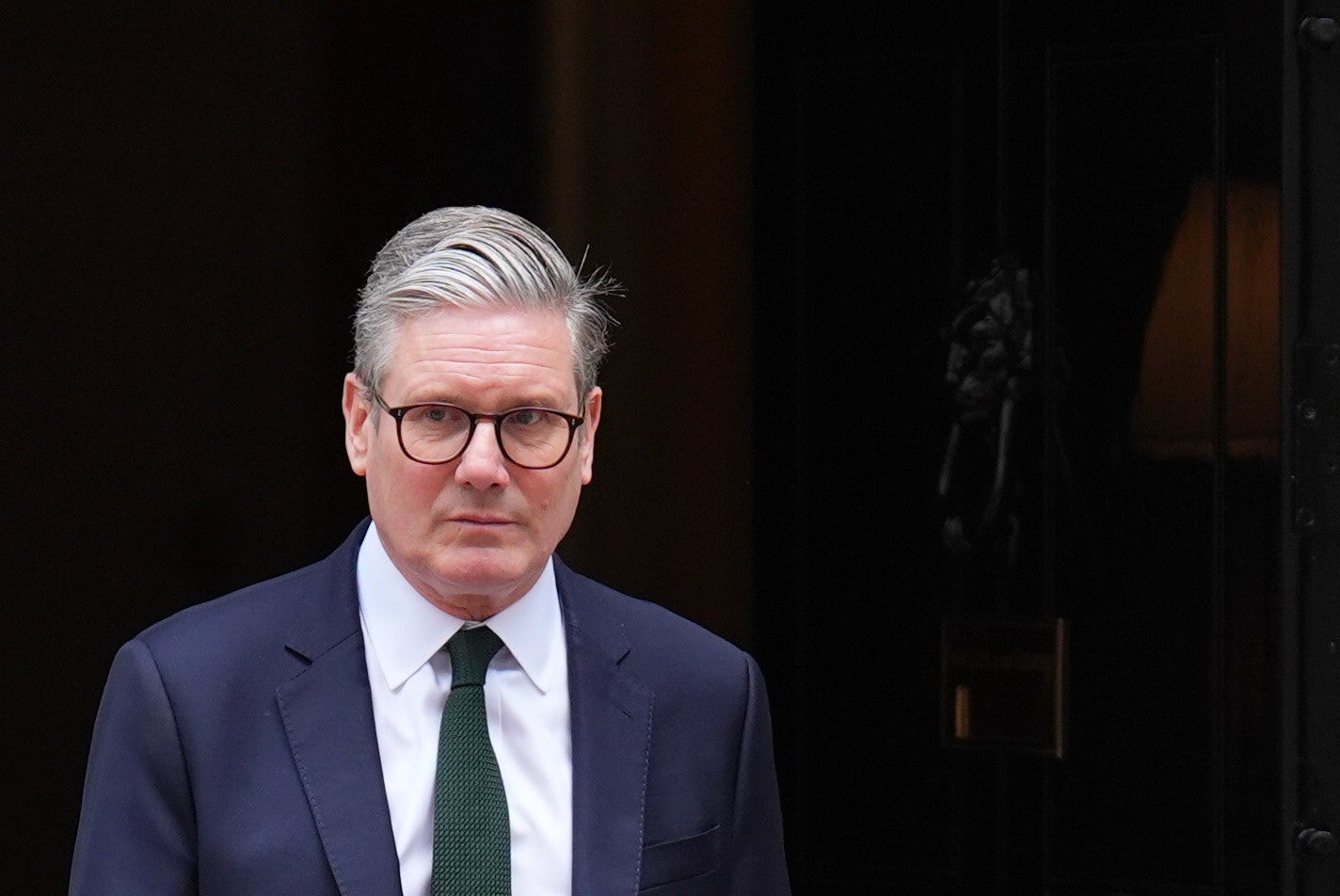The riots were Starmer’s first unexpected test as prime minister – has he passed it?
This unforeseen crisis has played to Sir Keir’s strengths as a former public prosecutor. While he may have succeeded, it is only the first of many challenges that lies before him, writes John Rentoul


Like the centurion who defended the bridge and saved Rome from the advancing Etruscans, Keir Starmer stood firm and the 100 planned riots failed to materialise on Wednesday night.
It feels as if a corner has been turned. Let us hope so. The weather has changed since my last riot forecast, and next week is predicted to be hot and dry, so the risk remains high. But there is a good chance that the prime minister’s tough stance on sentencing will act as a deterrent.
The news headlines should certainly make a casual thug stop and think before a spree of alcohol-fuelled violence. The three-year sentence handed down to Derek Drummond in Liverpool seemed particularly harsh – until we learned that he had 14 previous convictions, including for violent offences.
I am not an advocate of long prison sentences, but sometimes there is a need to make an example of offenders and to send a message. So the prime minister did the right thing in taking the firm line of warning would-be rioters that there would be consequences.
In truth, Starmer didn’t have to do much. He chaired some meetings and made two stern statements from the Downing Street lectern. Yvette Cooper, the home secretary, gave some interviews, including to her husband, Ed Balls, a presenter on ITV’s Good Morning Britain. She repeated the same messages with unsmiling seriousness, as did Shabana Mahmood, the justice secretary.
None of these Labour ministers was pressed to explain how prison places were suddenly available – although there has always been an element of theatre in the new government’s “emergency” plan to let out existing prisoners early, because it is not due to start until next month.
But those are details. The big picture is that the prime minister made a stand and spoke for the vast majority of the nation that regards the violence as inexcusable. The prominence of his leadership was enhanced by the absence of the leader of the opposition. Conservative Home, the voice of the Tory grass roots, demanded to know, “Where is Sunak?” Its writer, William Atkinson, said he was “Britain’s first ethnic minority prime minister. He is the most eloquent and prominent advocate for a successful multiracial Britain this country has yet produced. Does he not have anything to say?”
It turned out that, having made a statement at the weekend saying, “the police have our full support to deal with these criminals swiftly and they must face the full weight of the law”, Sunak was on holiday in California. The Mirror has a photo of him and Akshata at a restaurant in Beverly Hills.
And why shouldn’t he be? As I have argued that Starmer should take his holiday next week, I can hardly say that Sunak should stay at home when he is not even in government. But it is a missed opportunity for the Conservative Party, because its response has been divided dissonantly between several of the six leadership candidates, all saying slightly different things.
Meanwhile, Starmer may have passed his first test. It was an unforeseen crisis that played to his strengths – having been director of public prosecutions at the time of the 2011 riots. A bit like, although on a smaller scale, Gordon Brown dealing with the financial crash.
Let us hope that Wednesday night marked a decisive shift in the story, with the upper hand gained by the demonstrators opposed to violence and racism in Walthamstow in east London, Birmingham, Newcastle and Blackpool.
I do not accept Nigel Farage’s “root cause” argument, that cracking down on the rioters will do nothing to solve the underlying reasons for the disorder. I take the Margaret Thatcher line, echoed strongly by Starmer in recent days: “Nothing can justify, nothing can excuse and no one can condone the appalling violence.”
Starmer needs to show that he can control immigration, including the small boats, not because of the threat of riots but because it is an essential responsibility of government.
That, however, is one of many huge challenges facing Starmer in power. He is likely to fail at some of them. But at this unexpected and early test he has succeeded.






Join our commenting forum
Join thought-provoking conversations, follow other Independent readers and see their replies
Comments